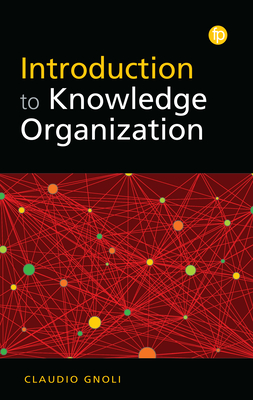Introduction to Knowledge Organization

Introduction to Knowledge Organization
This book provides a complete introduction to the rapidly expanding field of Knowledge organization (KO), presenting historical precedents and theoretical foundations in a discursive, intelligible form, covering the philosophical, linguistic and technical aspects. In the contemporary context of global information exchange through linked data, Knowledge organization systems (KOS) need to be represented in standard inter-operable formats. Different formats for KOS representation including MARC, Dublin Core, SKOS and OWL are introduced as well as the application of Knowledge organization to a variety of activities and contexts: education, encyclopedic knowledge, the Internet, libraries, archives, museums, galleries and other institutions collecting and providing access to recorded knowledge. Key coverage includes:
- ontology and epistemology in KO;
- KO structures: lists, hierarchies, and facets;
- KO types: tagging, taxonomies, thesauri, and classifications;
- conceptual analysis of documents; and
- applications in the digital age.
PRP: 619.08 Lei
Acesta este Pretul Recomandat de Producator. Pretul de vanzare al produsului este afisat mai jos.
557.17Lei
557.17Lei
619.08 LeiLivrare in 2-4 saptamani
Descrierea produsului
This book provides a complete introduction to the rapidly expanding field of Knowledge organization (KO), presenting historical precedents and theoretical foundations in a discursive, intelligible form, covering the philosophical, linguistic and technical aspects. In the contemporary context of global information exchange through linked data, Knowledge organization systems (KOS) need to be represented in standard inter-operable formats. Different formats for KOS representation including MARC, Dublin Core, SKOS and OWL are introduced as well as the application of Knowledge organization to a variety of activities and contexts: education, encyclopedic knowledge, the Internet, libraries, archives, museums, galleries and other institutions collecting and providing access to recorded knowledge. Key coverage includes:
- ontology and epistemology in KO;
- KO structures: lists, hierarchies, and facets;
- KO types: tagging, taxonomies, thesauri, and classifications;
- conceptual analysis of documents; and
- applications in the digital age.
Detaliile produsului








